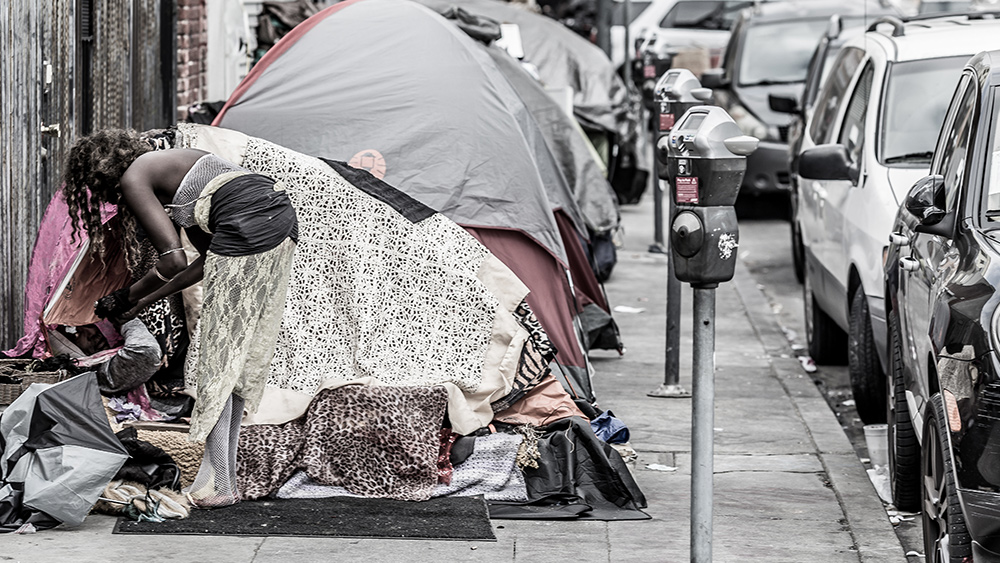
There are still people trying to make a living in Seattle, but the only way to do so reliably seems to be to take extreme measures against the growing population of homeless, tent-living vagrants and RV dwellers who are piling up on sidewalks and streets all across the city.
In some of Seattle's worst neighborhoods, business owners are banding together to install large, one-ton concrete blocks on sidewalks to prevent roamers, loiterers, and street people from setting up camp in front of their buildings.
The concrete blocks are technically illegal, but so is living full-time on a public right-of-way, which Seattle officials say they have no power to stop. So, those who work and who are trying to live civilly feel as though they have no choice but to take matters into their own hands.
"Individual businesses and residents are putting ecology blocks out as taking matters in their own hands because if they call the city and say there are RVs out in front of their business or out in front of their home, they can't do anything about it," says J.W. Harvey, a local business owner.
Some 13,300 people that we know of live on the streets of Seattle, a gargantuan number that was reached after the launch of the Wuhan coronavirus (Covid-19) plandemic.
Seattle currently has one of the highest homeless populations out of any city in the country, and those who still live there say it is impossible to make a living with so many vagrants blocking the sidewalks and streets.
Harvey says he spends more time speaking to and trying to help the homeless people who crowd the outside of his business than actually running the business. He is tired, he says, of trying to manage the "ripple effects" of everything going on right now in Seattle. (Related: Seattle just held a "Pride" event that featured grown men exposing their genitals to children.)
Seattle officials warned at least 25 property and business owners to remove concrete blocks or face potential fines
In 2020 at the start of the plandemic, Seattle and King County ranked third in the nation for homeless people, which at the time numbered 11,700. That number has since ballooned to well over 13,000 – with no apparent end in sight.
Another local business, the West Seattle Health Club, announced to its members earlier this year that eco-blocks are the latest installment to try to keep all those excess homeless from occupying the land surrounding the facility.
"To avoid the return of the encampment, the West Seattle Health Club is partnering with our neighboring businesses to place eco-blocks along the surrounding area," the company announced in June, referencing a homeless encampment that had previously been cleared by city authorities.
It turns out that there are now hundreds of concrete blocks scattered around Seattle in some of the hardest-hit areas of the city. The city says it is unable to deal with the homeless problem that resulted in these blocks being installed in the first place, but somehow had the time and resources to warn 25 property and business owners to remove the blocks or else face potential fines.
Some of the homeless people whom the city has approached and told to get off the streets and go to a shelter have refused because they claim they are fearful of catching the Fauci Flu at a homeless shelter.
"It's a shame that people can't enjoy the park," said an area resident about how many public parks in Seattle are now large homeless encampments.
The latest news about the destruction of America at the hands of greedy central bankers can be found at Collapse.news.
Sources for this article include:
Please contact us for more information.




















